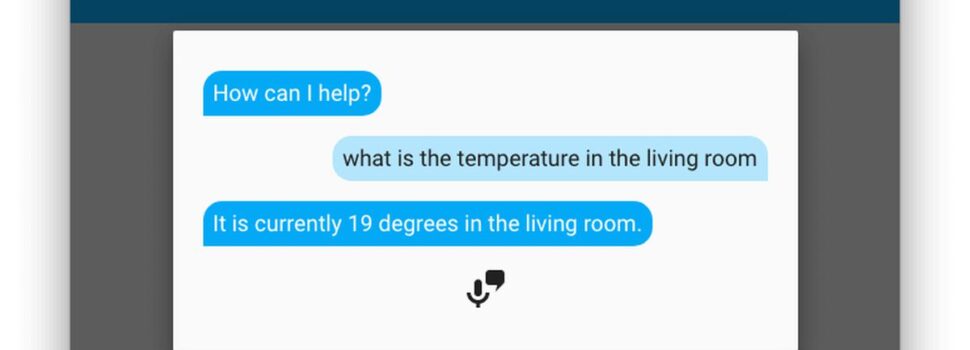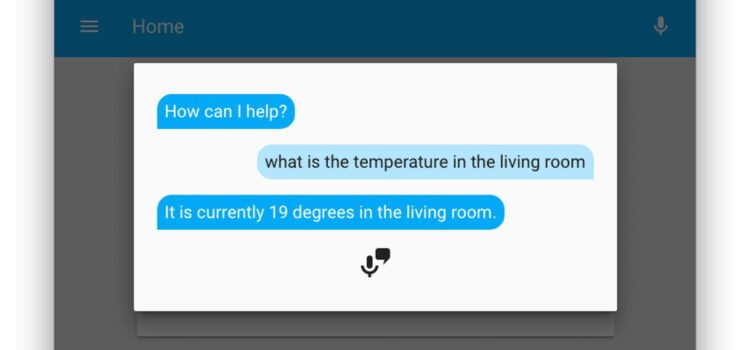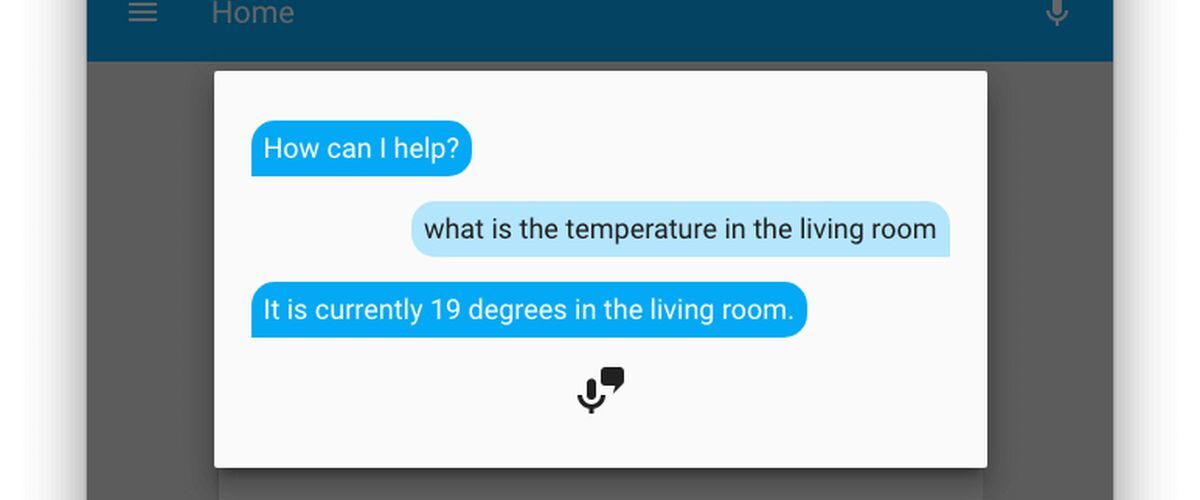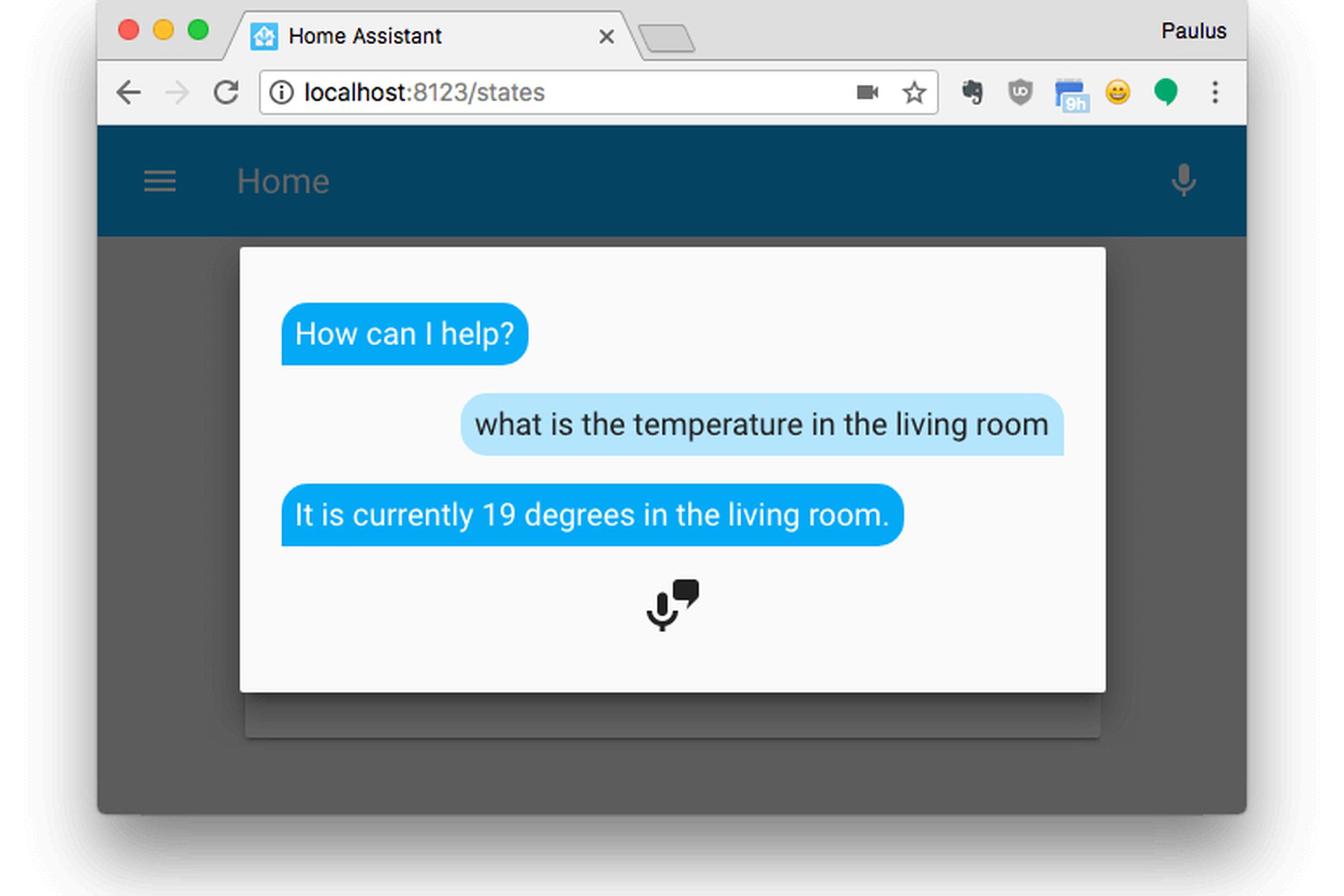


Home Assistant is getting a new voice assistant that takes on the “basics” of smart home control. It will be built by developer Michael Hansen, who is responsible for the open-source voice assistant Rhasspy.

Home Assistant, the open-source smart home platform, is getting its own voice assistant. Its founder, Paulus Schoutsen, posted a blog last week announcing a new project that could localize all voice commands that control smart devices — without the need to connect to a cloud that assistants like Alexa, Siri, and Google Assistant have. The voice assistant is targeted to be available sometime in 2023.
Schoutsen also runs Nabu Casa, a company that provides what’s effectively first-party cloud services for Home Assistant and also contributes to the development of the free platform. In addition, it’s making the Yellow out-of-box hardware solution that can run Home Assistant in your home without your needing to manually build one on a computer or Raspberry Pi.
To build a voice assistant, Nabu Casa needed someone with experience, so it brought on developer Michael Hansen to lead the project. Hansen is the creator of another open-source product called Rhasspy, a voice assistant backed by its own community that integrates the tech into whatever solution they’re trying to build.
Schoutsen writes that one of Nabu Casa’s biggest priorities for the new voice assistant is to work with multiple languages. The user interface for the Home Assistant application already supports 62 languages, and Schoutsen hopes that the community can help with getting them all voice-ready.
The Home Assistant voice product won’t initially be capable of things you’d expect a smart speaker to do. Schoutsen explains: “To keep the amount of work ahead of us manageable, we’re going to limit the number of possible actions and focus on the basics of interacting with your smart home. No web searches, making calls, or voice games. And definitely no ‘by the way’s!”
Voice assistants usually have “smart” internet-connected functions built in that are great at things like answering trivia questions, or checking sports scores. Alexa and Google Assistant are both particularly good at being “know it all” / “do it all” devices, but those abilities can complicate things if all you need is a smart home controller. Apple’s Siri is the easiest and fastest voice assistant for home commands, according to The Verge’s Jennifer Pattison-Tuohy, but it still requires an internet connection to work, whereas Home Assistant’s solution will be totally local. Siri also works best if you’re all-in on Apple’s HomeKit (now “Apple Home”) ecosystem, although Matter support is now bridging that gap — making all devices work with each others ecosystems simultaneously.
Home Assistant has also picked up Matter support, so in the future it could use its own voice assistant to control the devices it has brought together to one platform. The platform already has conversation integration that understands text-based speech, and Schoutsen mentions that command sentences are being gathered in a new “intents repository,” which can help the community program their own actions.
Voice assistant products have become a costly category for leading companies like Amazon, which laid off thousands of employees last month, with the Alexa division reportedly suffering the biggest cuts. And as Ars Technica points out, Google and Amazon both sold their voice hardware at cost to quickly increase their respective assistants’ install base — but the ongoing server costs to run them can be financially draining.
A Home Assistant-based smart home, however, doesn’t need the cloud, is open-source with a community backing it, and will have optional turn-key hardware you can buy if you’re not big on programming things yourself. Whether it will work as well as the big-tech voice solutions, though, is a question we may find the answer to next year.
